9th May 2024 to 20th May 2024
Discover the textiles of the Lesser Sundas (Maumere-Komodo)
From $8049 per person
Deposit 25%. Balance due 12 weeks before departure
The remote islands of eastern Indonesia have one of the most diverse textile cultures on the planet. Join us on an adventurous voyage to discover more about these textiles and the techniques used to make them.
11 Nights: 09 - 20 May 2024
From $9,850/ £8,049 per person*
*Trips are priced in the operator's local currency. The amount you pay in sterling will change with currency fluctuations.
Learn how a warp becomes a weft in the same textile, how mud is used in dyeing, how two different dyes are obtained from the sea hare, and much, much more.
In village after village we will see every aspect of textile production and natural dyeing and enjoy the opportunity to purchase fabulous textiles directly from the women who made them.
This is a journey that artfully weaves together the cultural richness of the Lesser Sundas with the underwater paradise of Komodo.
Our Fabric & Fins adventure takes you from the vibrant town of Maumere to the legendary waters of Komodo National Park. Along the way, you'll be spellbound by the intricate beauty of traditional ikat textiles, watching as skilled artisans bring patterns to life with ancient techniques.
Swap the loom for a mask as we anchor in the crystal-clear seas where you can snorkel among thriving coral reefs, playful manta rays, and a kaleidoscopic array of sea life.
This trip is a perfect blend of discovery and serenity, offering a peek into the soul of Indonesia both above and below the waves.
Why You’ll Love This Trip
- Explore the art of ikat weaving with local artisans and their age-old looms.
- Snorkel and swim in some of the most biodiverse waters on the planet.
- Encounter the majestic Komodo dragons in their natural habitat.
- Discover the colourful marine life of the Coral Triangle.
- Explore traditional villages and gain insights into local customs.
- Relax on serene white-sand beaches with breathtaking views.
Who The Trip Is For
- Culture buffs and craft lovers charmed by traditional arts.
- Marine life enthusiasts ready for world-class snorkelling.
- Adventure-seekers looking for an authentic connection with local communities.
- Travellers yearning for a mix of relaxation and exploration in stunning locations.
- Suitable for individuals, friends, or families searching for a shared cultural and natural experience.
Itinerary: textiles of the Lesser Sundas
Day 1
Upon arrival from Bali, meet at Maumere airport and transferred to the boat, which will be waiting at anchor.
After lunch, you visit a busy local fishing village of Bugis and Bajau people, famous for their stilt houses built above the water.
This evening before dinner, relax over cocktails as David and Sue give an introductory talk about the culture and textiles of the local Sikka People.
Day 2
Today, drive up into the highlands to visit a small village where you are welcomed with music and dancing.
After gaining your first insights into the local techniques of spinning, binding, dyeing and weaving, you have the opportunity to purchase some of the finished textiles, while the adventurous among you will be able to try betel nut, tobacco and locally distilled liquor.
Return to the boat for lunch as you sail towards a small island for beachcombing, swimming and snorkelling.
Day 3
Early this morning you pass in front of a towering volcano to anchor in a sheltered picturesque bay. After breakfast, go ashore and be welcomed by local Lamaholot villagers who show in detail how they produce their fantastic earthy-brown ikats decorated with small white seashells.
You are guided around this colourful well-kept village before returning to the Ombak Putih for lunch. After lunch, sail to some small islands close to the northeast coast of Adonara Island for swimming, snorkelling and beachcombing. Moor nearby overnight.
Day 4
Today, visit two weaving communities on the island of Adonara. One village is on the flank of an active volcano and the other is on the coast. The people of Adonara are also Lamaholot, but their weavings are quite different from those we have seen so far.
After another busy morning, enjoy lunch on board before a refreshing dip.
Day 5
Arrive in Lembata next to the gently smoking volcano of Ile Api, where you go ashore to see some of the superb ikat textiles produced in this region, meeting weavers from at least three neighbouring villages.
After a formal welcome and demonstration of local weaving techniques, there will be a selling exhibition of textiles, giving you the chance to add a fabulous bridewealth cloth to your collection.
Guests will also be invited to see an ancient anthropomorphic rock painting in a nearby village. Later, during lunch, the boat will cruise around the headland to a great snorkelling spot.
Day 6
Visit the tiny village of Uma Pura on Ternate Island, where you discover how they make around 100 different natural dyes, some using ingredients such as sea sponges, sea anemones and the ink of sea hares, and will have the chance to see and buy many of their fabrics.
Back on board, you have lunch while sailing to the large island of Alor, where you take a short drive to a village inhabited by the Abui tribe. You’ll be invited to join in the hypnotic lego-lego dance before shopping for textiles, baskets and jewellery at a small pop-up market.
You return via the Kalabahi Museum, where you see their fine display of textiles and moko drums from across the island.
Day 7
As you wake, approach the fascinating whaling village of Lamalera, on the southern side of Lembata, watching some of the boats heading out to sea. Land on the beach in front of a row of 30 whaleboat sheds and are escorted into the village clearing by local schoolchildren.
After a welcome by the kepala desa, you are entertained by dance performances and shown demonstrations of local dyeing and weaving. Many textiles and other artefacts will be available to buy. Then go to the upper village to visit the school and the massive Catholic church, getting excellent views of the boat sheds as you descend.
After returning to the boat, the local whalers put on a demonstration of how they harpoon whales from their tiny sailboats. Lunch is served as you sail along the coast to a small sandy beach for a refreshing swim.
Day 8
Early the next morning, arrive at a weaving village on the island of Solor. They are very enthusiastic about sharing their culture and hospitality with you. They also make super baskets!
Lunch is served as you begin your long overnight sail to the beautiful non-volcanic island of Savu far to the south. This is a time for relaxing and enjoying simply being on the boat.
Day 9
After breakfast, go ashore at Napae Bay, following in the footsteps of Captain Cook who landed HMS Endeavour on the same beach in 1770. You drive to a tiny hamlet in the hills, where local weavers warmly welcome you and show how they still make their beautifully traditional naturally dyed cloths. The men will demonstrate how they climb the tall lontar palms to tap their delicious juice, which of course you will be able to sample.
After lunch on board, you return ashore to witness a cleansing ceremony, before being welcomed by ikat-clad horsemen showing you their riding skills.
A short drive takes you to Namata, the most important ritual centre on the island, where you visit the sacred enclosure of priests of the ‘Jingi Tiu’ religion, containing the largest grouping of megaliths on the island.
Day 10
This morning you land on a sandy beach on the east coast of the island of Sumba and head off to visit two amazing but quite different royal villages, each with megalithic graves surrounded by tall traditional thatched houses.
You meet members of two local royal families and see how they make some of the finest textiles to be found on the island, using the techniques of supplementary warp and warp ikat – sometimes even combining both techniques in one textile.
You return to the Ombak Putih for lunch while you sail north, stopping at a local beach for a late afternoon swim and snorkel.
Day 11
Today, drive to a rarely visited weaving village and be greeted by ikat-clad warriors on horseback. Sitting in the shade on the veranda of a traditional house you are welcomed by the entire village and entertained with traditional dances that are still used to welcome important visitors and were used in the past to welcome the warriors back from their headhunting expeditions.
Textiles will be hanging everywhere and you are offered a huge array of jewellery, statues, boxes, baskets and other crafts.
Tonight, as you cruise north, you are invited to dress lavishly in your finest ikat cloths for our farewell dinner party with the captain and crew, who will entertain you on deck with traditional Indonesian song and dance.
Day 12
Today, make a brief visit to the Komodo National Park and go ashore for a short trek with park rangers, hoping to spot these ancient lizards in their natural habitat.
Back on board, you have an early lunch as you sail towards Labuan Bajo, before saying goodbye to the crew and being escorted to the airport.
- Professional cruise directors
- Outdoor sleeping facilities
- Complimentary snorkelling equipment and two sea canoes (add SUP)
- Free tea, soft drinks, juices, coffee and mineral water
- Excellent food and snacks (vegetarian and special menus on request)
- Dining in the spacious air-conditioned lounge
- Teak wooden furniture in the lounge, cabins and on the deck
- Spacious sun and semi-covered decks
- Mooring fees
- Fuel surcharge
- Visits to restaurants, museums, galleries etc during the trip
- A fine selection of wines, beer and spirits for sale
- Travel to and from the vessel (including internal/domestic airfares)
What To Expect
While many of you are seasoned travellers, some of you may be unfamiliar with the ways and means of travelling in the remoter regions where we journey. Cruising in eastern Indonesia on a traditional wooden pinisi ship can be an exciting new world for some.
Each cruise is led by professional, multilingual tour leaders who will escort guests in all activities both on land and at sea, answer any questions, provide in-depth daily briefings, and ultimately ensure the smooth running of every aspect of the cruise.
Life On Board
Life on board our ships is one of pure enjoyment, with good food, top-class service and fine company mixed with just the right balance of exploration and relaxation. Whilst on board, guests are immersed in a world of barefoot fun and adventure, with air-conditioned private en-suite cabins, indoor and outdoor social hubs and dining areas, sun decks, a wide selection of Indonesian, Western and Asian cuisine, a full bar, and highly attentive service from our crew, whose smiles and friendly personalities offer an even greater insight into the Indonesian way of life.
Food
Our galleys are staffed with talented individuals who pride themselves on being able to conjure up all manner of dishes and delicacies from across the world, using only the best quality meat, seafood and fresh produce available – with the latter often sourced from local markets and the fishermen we meet along the way. Vegetarian dishes and most special dietary requirements can be accommodated with minimal fuss. Our stewards are on hand all day to serve meals and make sure you have all you need; from cold towels and fresh juices to a full plate of food and an iced drink whenever you need it.
While all non-alcoholic drinks are inclusive, each boat has a full cash bar stocked with local and imported wines, imported spirits and domestic beer, usually at local prices.
Accommodation
Our comfortable cabins are located below decks and offer all the necessary amenities, including double beds or twin bunks, private en-suite bathrooms, lots of natural light, individually controlled air-conditioning, ample storage space, and plenty of electrical and USB outlets.
Each boat also includes a salon, bar, sundeck and outdoor dining areas.




We Respect the Environment
We respect the environment in which we operate and are deeply committed to the integrity and preservation of the Indonesian Archipelago.
We show locals the value of protecting the species they have. For example, whale sharks are under constant threat due to the sky-high value of their fins, but thanks to our visits, local fishermen are paid a healthy fee for spotting the whale sharks and letting you in the water to be up close to them. As a result, the fishermen are very glad to protect these beautiful animals.
We also work with local NGOs on coral restoration projects in the area, and support centres like the Tasikoki Wildlife Rescue Centre which helps to rehabilitate animals back into the wild and put an end to animal trafficking.
We Support Local Communities
Our motto for these sailing adventures is “Seeing Indonesia through Indonesian eyes”. We hire locals and work with local communities to promote authentic cultural experiences and interactions between tourists and locals to foster mutual understanding and respect.
More than half of our tour guides are women. In Indonesia the workforce is extremely male-dominated, so this is a way for us to break down barriers and create a more inclusive workforce.
We partner with local NGOs working on community development projects. As well as make an effort to bring life-changing water filters, glasses, school books and LED lights to the remote villages we visit. We buy from local fishermen, and vendors and always pay the locals when they treat us to a cultural performance.
We have created a series of three books which are available for sale on our boats. The money from each book sold is entirely invested back in creating new books to distribute to communities we visit. These are just some of the ways we work to offer a responsible and equitable sailing experience.
Fly from Ngurah Rai Airport, Bali
Fly to Komodo Airport, Flores
Itinerary: textiles of the Lesser Sundas
Day 1
Upon arrival from Bali, meet at Maumere airport and transferred to the boat, which will be waiting at anchor.
After lunch, you visit a busy local fishing village of Bugis and Bajau people, famous for their stilt houses built above the water.
This evening before dinner, relax over cocktails as David and Sue give an introductory talk about the culture and textiles of the local Sikka People.
Day 2
Today, drive up into the highlands to visit a small village where you are welcomed with music and dancing.
After gaining your first insights into the local techniques of spinning, binding, dyeing and weaving, you have the opportunity to purchase some of the finished textiles, while the adventurous among you will be able to try betel nut, tobacco and locally distilled liquor.
Return to the boat for lunch as you sail towards a small island for beachcombing, swimming and snorkelling.
Day 3
Early this morning you pass in front of a towering volcano to anchor in a sheltered picturesque bay. After breakfast, go ashore and be welcomed by local Lamaholot villagers who show in detail how they produce their fantastic earthy-brown ikats decorated with small white seashells.
You are guided around this colourful well-kept village before returning to the Ombak Putih for lunch. After lunch, sail to some small islands close to the northeast coast of Adonara Island for swimming, snorkelling and beachcombing. Moor nearby overnight.
Day 4
Today, visit two weaving communities on the island of Adonara. One village is on the flank of an active volcano and the other is on the coast. The people of Adonara are also Lamaholot, but their weavings are quite different from those we have seen so far.
After another busy morning, enjoy lunch on board before a refreshing dip.
Day 5
Arrive in Lembata next to the gently smoking volcano of Ile Api, where you go ashore to see some of the superb ikat textiles produced in this region, meeting weavers from at least three neighbouring villages.
After a formal welcome and demonstration of local weaving techniques, there will be a selling exhibition of textiles, giving you the chance to add a fabulous bridewealth cloth to your collection.
Guests will also be invited to see an ancient anthropomorphic rock painting in a nearby village. Later, during lunch, the boat will cruise around the headland to a great snorkelling spot.
Day 6
Visit the tiny village of Uma Pura on Ternate Island, where you discover how they make around 100 different natural dyes, some using ingredients such as sea sponges, sea anemones and the ink of sea hares, and will have the chance to see and buy many of their fabrics.
Back on board, you have lunch while sailing to the large island of Alor, where you take a short drive to a village inhabited by the Abui tribe. You’ll be invited to join in the hypnotic lego-lego dance before shopping for textiles, baskets and jewellery at a small pop-up market.
You return via the Kalabahi Museum, where you see their fine display of textiles and moko drums from across the island.
Day 7
As you wake, approach the fascinating whaling village of Lamalera, on the southern side of Lembata, watching some of the boats heading out to sea. Land on the beach in front of a row of 30 whaleboat sheds and are escorted into the village clearing by local schoolchildren.
After a welcome by the kepala desa, you are entertained by dance performances and shown demonstrations of local dyeing and weaving. Many textiles and other artefacts will be available to buy. Then go to the upper village to visit the school and the massive Catholic church, getting excellent views of the boat sheds as you descend.
After returning to the boat, the local whalers put on a demonstration of how they harpoon whales from their tiny sailboats. Lunch is served as you sail along the coast to a small sandy beach for a refreshing swim.
Day 8
Early the next morning, arrive at a weaving village on the island of Solor. They are very enthusiastic about sharing their culture and hospitality with you. They also make super baskets!
Lunch is served as you begin your long overnight sail to the beautiful non-volcanic island of Savu far to the south. This is a time for relaxing and enjoying simply being on the boat.
Day 9
After breakfast, go ashore at Napae Bay, following in the footsteps of Captain Cook who landed HMS Endeavour on the same beach in 1770. You drive to a tiny hamlet in the hills, where local weavers warmly welcome you and show how they still make their beautifully traditional naturally dyed cloths. The men will demonstrate how they climb the tall lontar palms to tap their delicious juice, which of course you will be able to sample.
After lunch on board, you return ashore to witness a cleansing ceremony, before being welcomed by ikat-clad horsemen showing you their riding skills.
A short drive takes you to Namata, the most important ritual centre on the island, where you visit the sacred enclosure of priests of the ‘Jingi Tiu’ religion, containing the largest grouping of megaliths on the island.
Day 10
This morning you land on a sandy beach on the east coast of the island of Sumba and head off to visit two amazing but quite different royal villages, each with megalithic graves surrounded by tall traditional thatched houses.
You meet members of two local royal families and see how they make some of the finest textiles to be found on the island, using the techniques of supplementary warp and warp ikat – sometimes even combining both techniques in one textile.
You return to the Ombak Putih for lunch while you sail north, stopping at a local beach for a late afternoon swim and snorkel.
Day 11
Today, drive to a rarely visited weaving village and be greeted by ikat-clad warriors on horseback. Sitting in the shade on the veranda of a traditional house you are welcomed by the entire village and entertained with traditional dances that are still used to welcome important visitors and were used in the past to welcome the warriors back from their headhunting expeditions.
Textiles will be hanging everywhere and you are offered a huge array of jewellery, statues, boxes, baskets and other crafts.
Tonight, as you cruise north, you are invited to dress lavishly in your finest ikat cloths for our farewell dinner party with the captain and crew, who will entertain you on deck with traditional Indonesian song and dance.
Day 12
Today, make a brief visit to the Komodo National Park and go ashore for a short trek with park rangers, hoping to spot these ancient lizards in their natural habitat.
Back on board, you have an early lunch as you sail towards Labuan Bajo, before saying goodbye to the crew and being escorted to the airport.
Everyone tends to dress very casually, so choose clothes that are comfortable for walking/trekking and suitable for wearing on the boat.
Clothing
The tropical climate means you can safely leave all of your warm weather gear at home. Bring cool cotton t-shirts and shorts. We cruise during the dry season in each of the regions that we visit but rain is always a possibility so bring a lightweight waterproof jacket. It can sometimes be a bit windy on the boat and this will also help keep you warm. Likewise, a lightweight fleece could be useful for pre-dawn trekking or if there is a cool wind on the boat – even if you don’t need it onboard, it will be useful for the plane.
We are respectful of the local cultures and customs – bring clothes that cover your shoulders and knees for village visits. Finally, you might want to bring at least one smart-casual outfit for sunset cocktails and evening meals on the boat.
Ladies: beach throw-overs, kaftans and sarongs are always useful; choose fabrics that dry easily. Also, bring a lightweight sundress or two – the boat offers a great setting for a photo shoot, live it up!
Sun Protection
You’ll be spending plenty of time out in the scorching tropical sun, so be sure to pack sunscreen with a high enough SPF to protect your skin from the sun’s damaging rays, which are stronger in the water, and some sun-protective clothing as well.
Cover-ups, sarongs, sun shirts, and other such clothing will ensure that you come back from your trip with just happy memories and photographs – and not sunburn. A good hat is essential; a wide-brimmed hat or cap will keep the strong equatorial sun off your face and neck. Sunglasses keep your eyes protected. A strap to hold your glasses can be a good idea for more active adventures. Just in case you fail to avoid getting sunburnt, bring an aloe-based lotion to soothe burned skin.
Footwear
Pack comfortable trainers, trekking sandals, sturdy walking shoes or hiking boots for hikes and walks. Bring socks to wear inside your walking shoes to avoid getting blisters. Many travellers appreciate the added stability of a walking stick or hiking pole; lightweight telescopic poles are easy to pack. You might also want waterproof sandals or reef shoes for wet landings and water activities. Flip-flops are great for the beach but it is standard practice to go barefoot on the boat.
Bags
A day backpack is essential on day hikes to carry things such as your water bottle, camera, binoculars, and rain jacket. We will provide you with a metal water bottle, which can be refilled as often as required. A waterproof wet/dry bag is a good idea for gadgets like your phone or camera.
Swimwear
Don’t forget your swimsuit/bikini/shorts/trunks/Speedos —and preferably more than just one swimsuit, so that one or two can be drying while you are wearing another. Luckily, swimsuits and/or swim trunks don’t take up too much space in your luggage. The water is warm but a rash guard (or a wetsuit) will protect you from the sun, abrasions and stings.
Skin and Hair Protection
Ladies, it’s important that you take good care of your skin and hair. The sun, seawater and salty air may be beautiful to experience but it can be tough on your body and will wreak havoc on your locks. Bring moisturising lotion to soothe skin parched by the sun and the saltwater; bring a leave-in conditioner to detangle your hair with ease because the water, mask, and hair ties will leave it in knots. Also consider bringing a scarf or headband to hold back unruly hair, or hair ties/pins to keep your hair off your face and therefore prevent water seeping into your mask.
Note: Your cabin is outfitted with towels, shampoo, conditioner and body wash.
Camera Equipment
If you are a photo enthusiast bring all of the camera and video equipment that you will use as you can expect exceptional opportunities for photography. If you prefer the ease of a point & shoot, bring that. If you want to take underwater photos you might want to invest in a waterproof camera or waterproof housing to capture photos of the incredible marine life.
It’s a good idea to bring a spare memory card; our cruises explore remote regions where memory cards cannot be purchased.
Electronics
The voltage on board is 220 volts. There are several electric sockets and USB charging ports in each cabin suitable for European-type plugs, but we do have a selection of adaptors for non-European-type plugs. Additional sockets are located in the saloon, where we have a dedicated area for the charging of electronic devices and cameras.
Miscellaneous Items
Snorkels, masks & fins in all sizes are provided onboard. If you are an avid snorkeller, you may prefer to bring your own mask & snorkel. If you’re new to snorkelling, you might want to consider purchasing a full-face snorkel mask to bring with you, it’s an easier option for beginners.
Even if you think that your stomach is rock-solid, a squall could turn up and make you feel sick. Sea-sickness tablets are provided on board but you may have a preferred brand, in which case bring your own.
You’ll find reference books and paperback novels on board. However, books of your choice or an e-reader will come in handy for down hours.
There is a comprehensive wilderness first aid kit on board but remember to bring any personal medications.
Essential items should be packed in your carry-on luggage. Medications, corrective lenses, spare underwear, cameras and documents should not be checked in case your bag does not arrive with you.

















